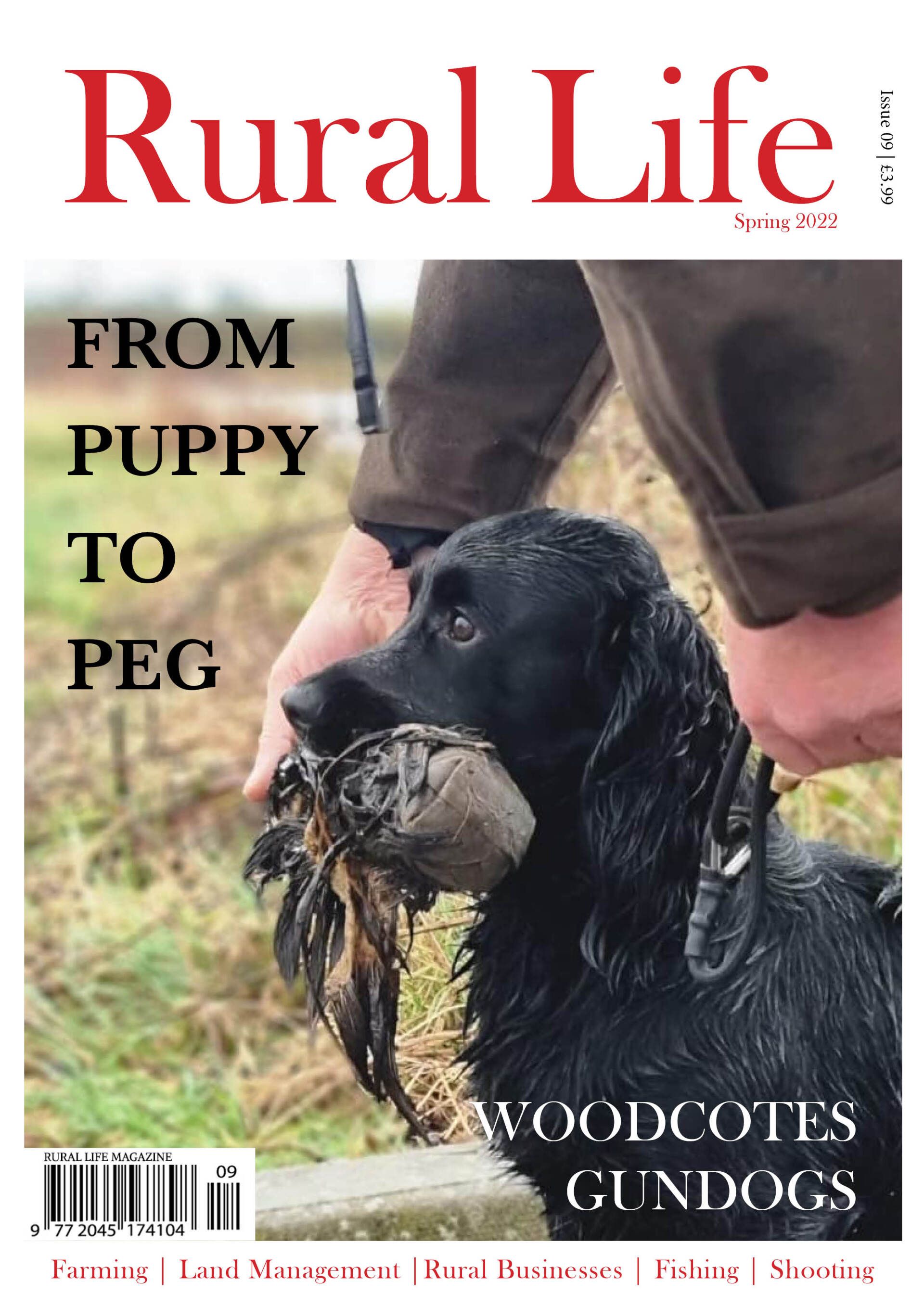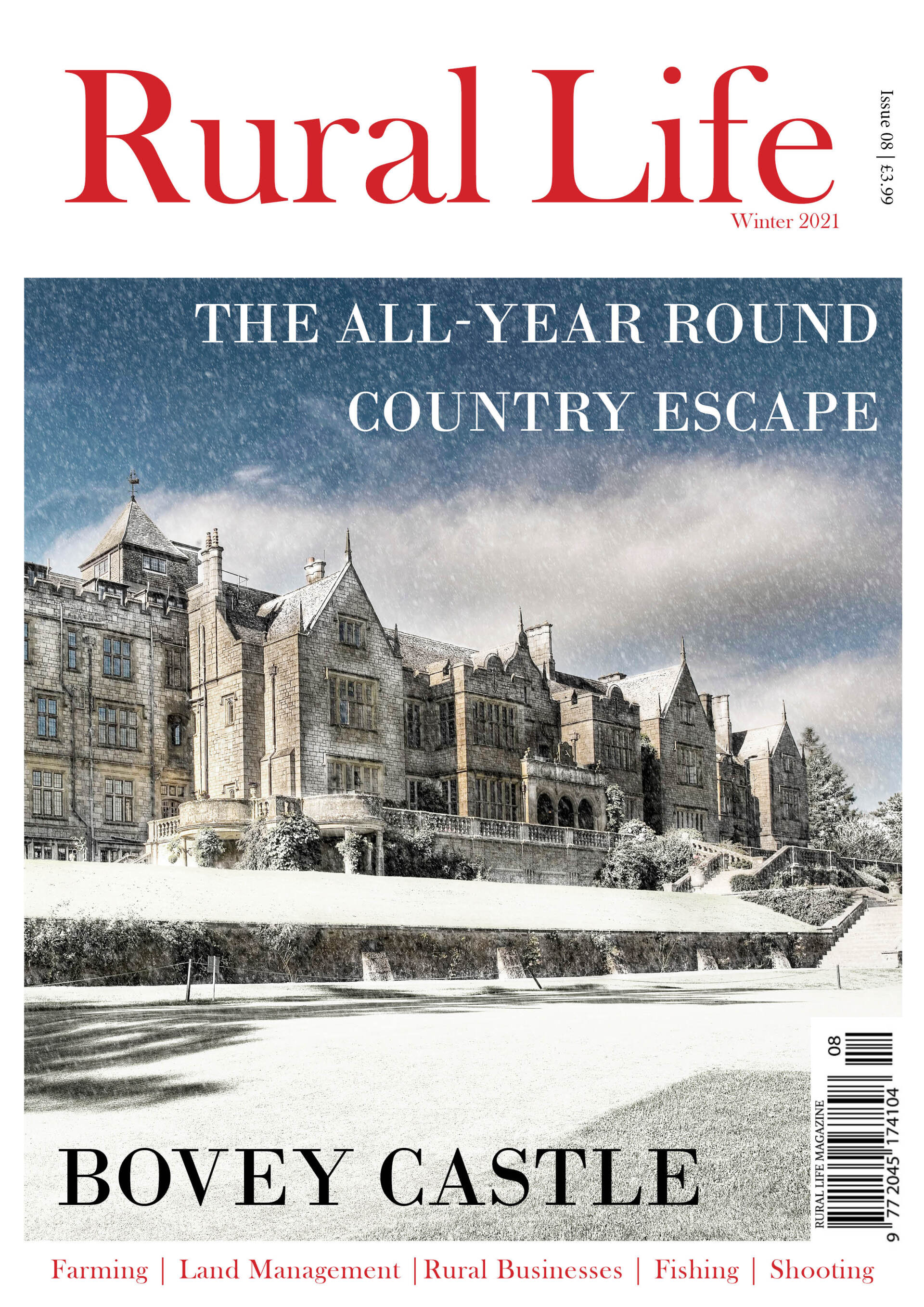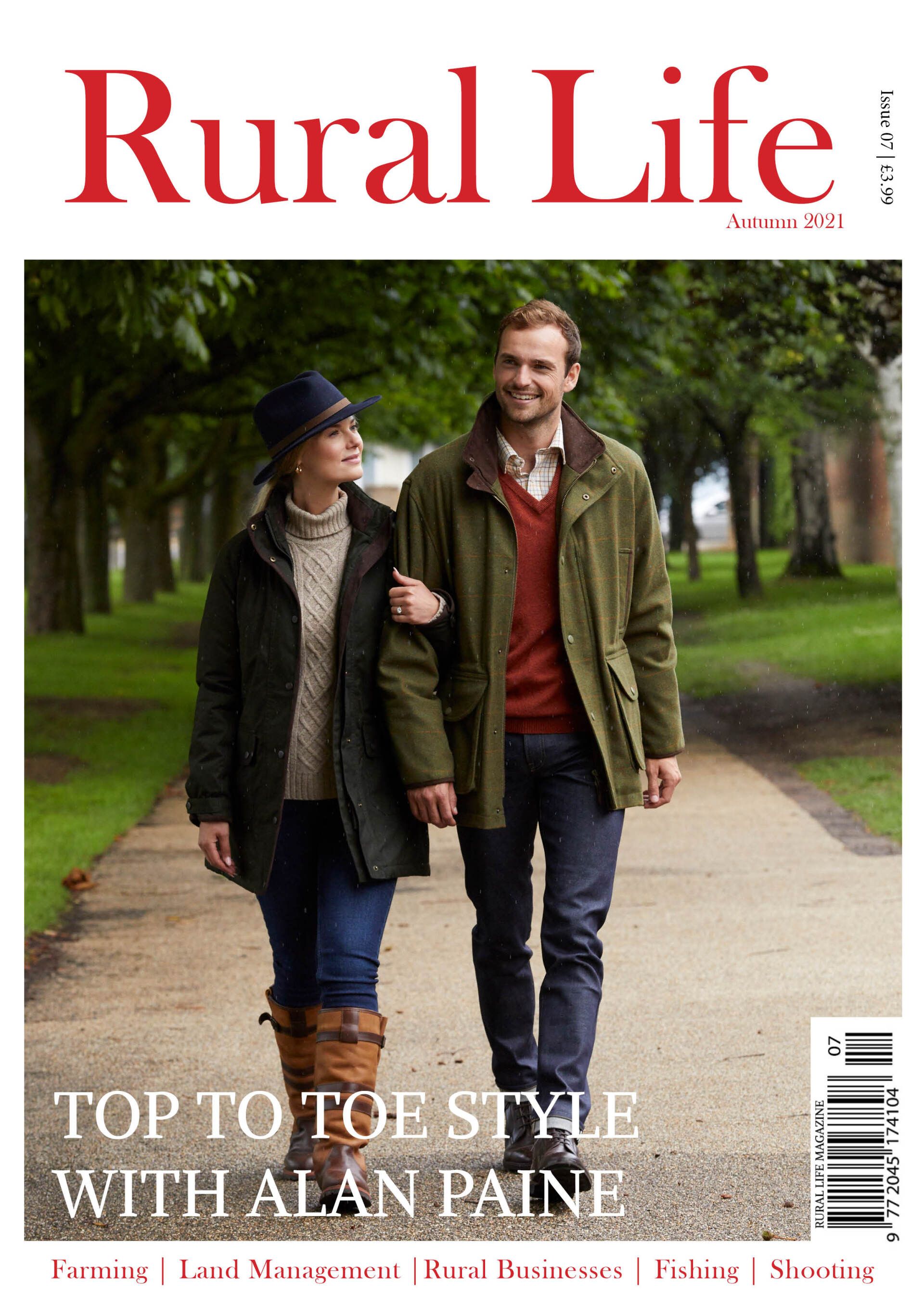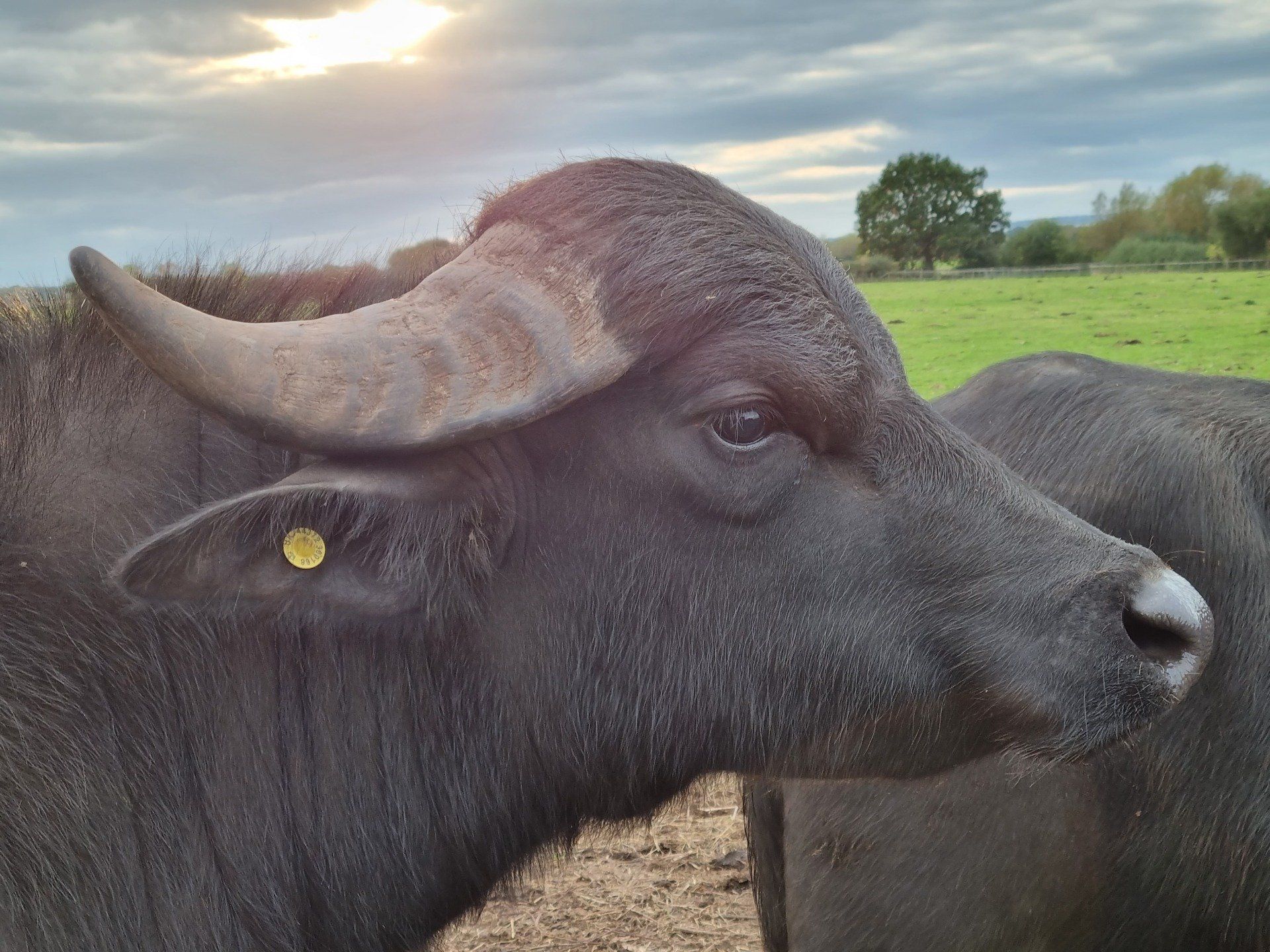MATTWELLYN WATER BUFFALO
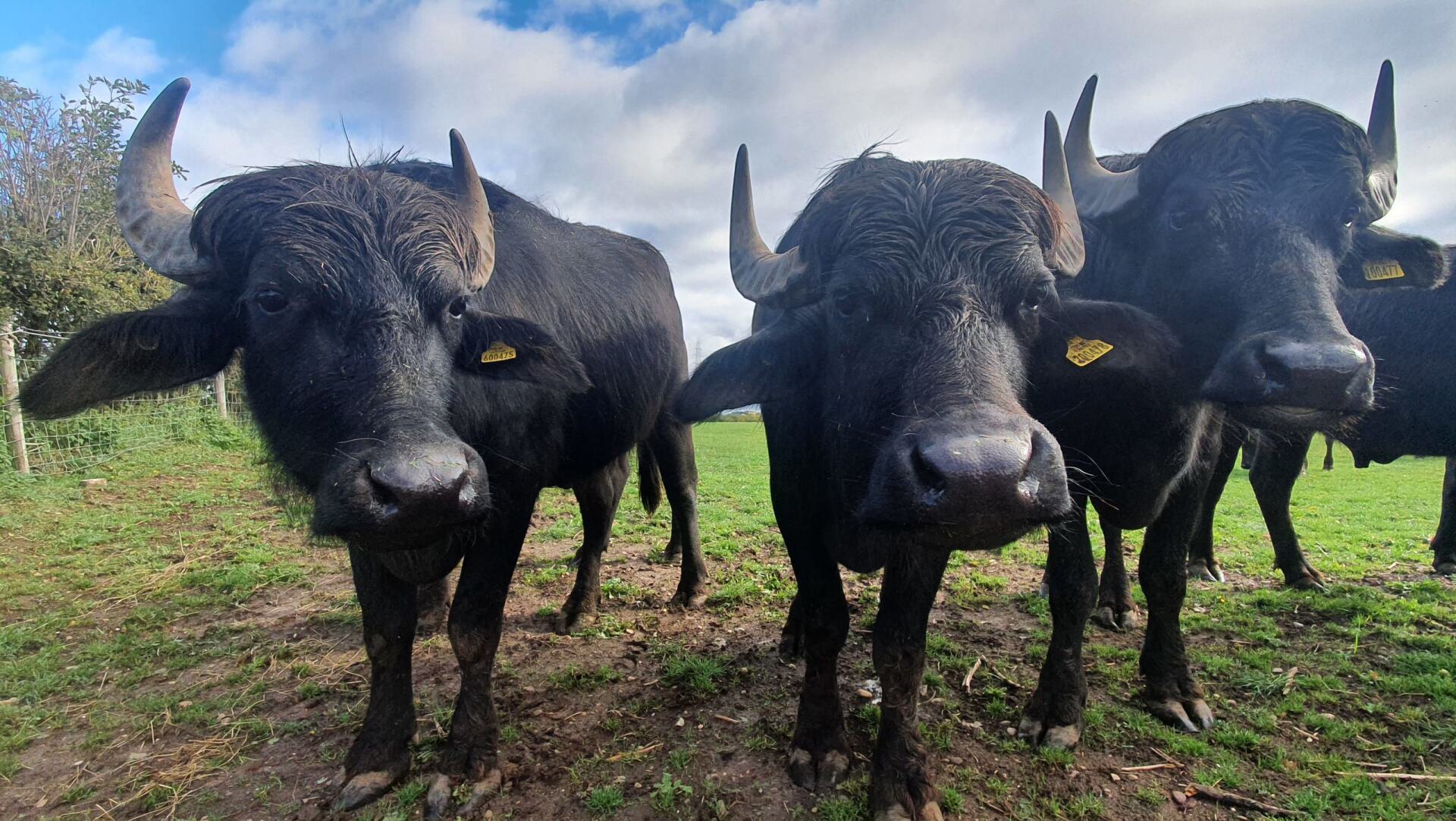
Steve Matthews and Claire Llewellyn were both born in Staffordshire and currently rent around one hundred and twenty acres where they base their business, Mattwellyn, which is home to a hundred and fifty sheep and seventy water buffalo. This is a small insight into their life with Water Buffalo written by Claire.
As first generation farmers, both being in our early thirties, it was very difficult to get a foothold on the farming ladder. Like most people we started with a handful of sheep but then decided we wanted to do something different to further our business.
In 2015 we came across water buffalo. We had considered alpacas, goats, various breeds of cattle and also camels for milking but decided they weren’t what we were looking for. When we came across water buffalo we knew they were exactly what we wanted. After a lot of research, I went to work on a large buffalo dairy farm for a few weeks to gain experience and learn as much as I could. Steve, has relief milked on a number of dairy farms since leaving school so was already very knowledgeable and proficient at milking. In 2019 I was invited onto a course in Italy and am now a delegate for the International Buffalo Federation.
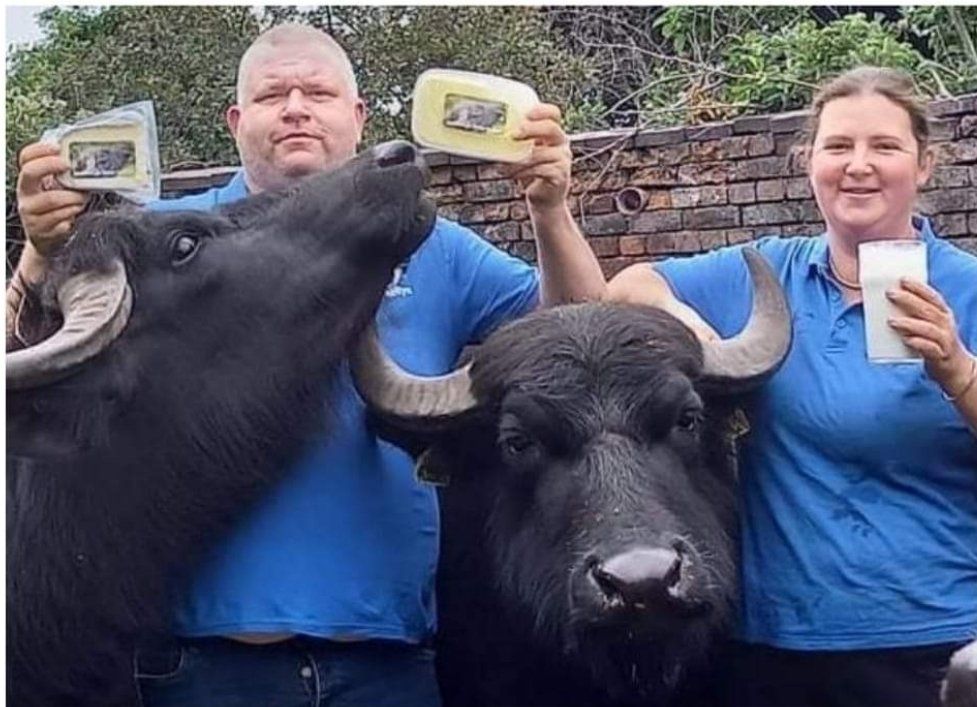
There are a number of types of Water buffalo, not to be mistaken for the Cape Buffalo found in Africa or the American Bison. They fall into two distinct sub groups, Riverine and Swamp.
Swamp buffalo are found throughout Asia and have a smaller lighter frame making them ideal for use in rice paddies as draught animals, they are also used to provide their family with milk, and meat when they are no longer productive. Riverine Buffalo are more widely bred in Europe and South America, they have a larger frame and are more useful for meat and milk. In the UK the Riverine buffalos are the most popular, with Swamp buffalos only really being found in zoos and Safari parks. Italian genetics are especially sought for milk production whereas Romanian genetics are more widely found in beef suckler herds.
Water buffalo are very versatile animals which are greatly under utilised in the UK. The yield is considerably lower than a dairy cow but buffalo produce a rich creamy milk containing around 8% fat and 12% protein. The milk is A2 protein, similar to goats, which has been found to offer a lot of health benefits. Buffalo milk is most widely known for its use in Mozerella.
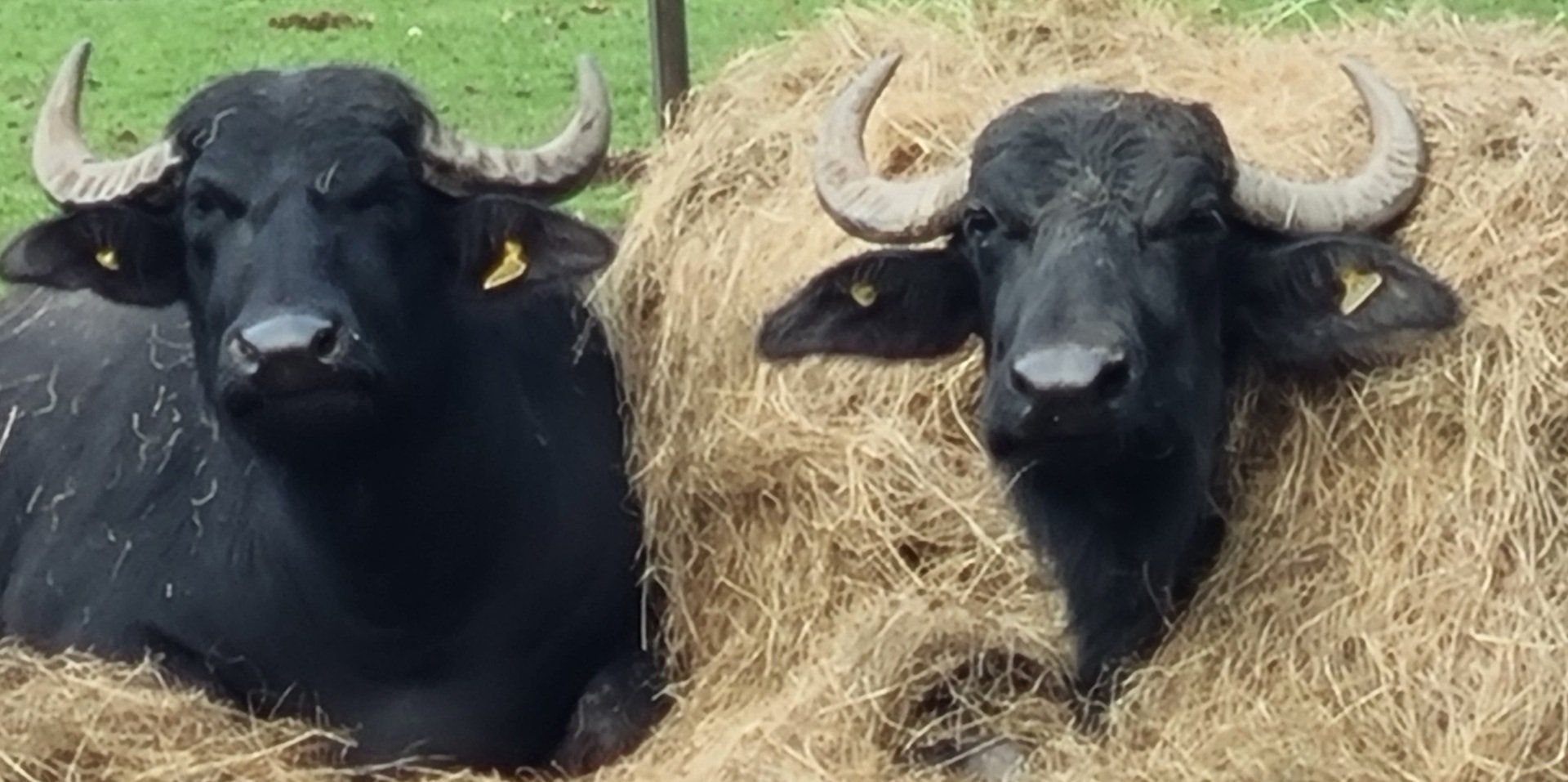
The meat from a buffalo is similar to beef but higher in protein and iron, whilst being lower in fat and cholesterol. it is strongly recommended for people with heart problems. It has a full, pleasant flavour, a rich, dark colour and is easily digestible due to being lean with less intramuscular fat.
On our small farm in the Midlands we currently have a herd of seventy Mediterranean water buffalo, we run two bulls which are from Italian genetics. The heifers go to the bull at around twenty four months or when they are a minimum of four hundred kilos. The gestation of a buffalo is circa ten months, slightly shorter than a bovine. They can not be crossed with bovines as they genetically have less chromosomes. Buffalos are seasonal breeders, coming into season in the autumn, similar to sheep.
On calving, our calves stay with their mother for the first week and then we separate them during the daytime to milk the buffalo cows in the evenings before returning them to their calves for the night. We find this method suits us, the cows and the calves. Buffalo are very easy breeders and virtually never need assistance calving. Due to the higher fat content in the milk and an intolerance to copper, if a milk replacer is used a sheep milk substitute has to be sought.
We have raised a number of calves using this method in the past but they are difficult to bucket rear and don’t thrive, whereas when they are on the cows they grow very fast. We castrate the males in the first few days of life to raise for meat and the heifers are destined to join the milking herd in future years.
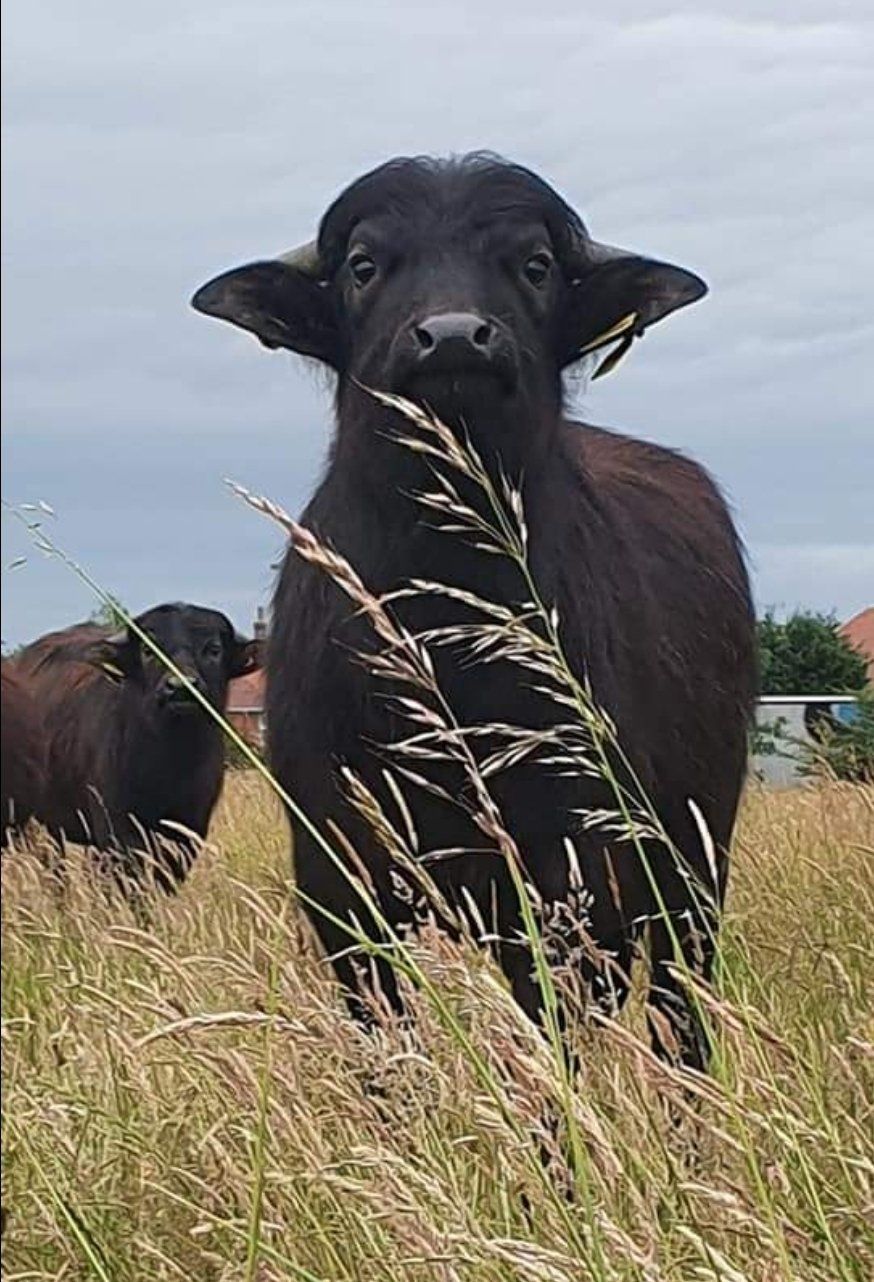
Buffalos are hardy animals with very few health problems and are therefore easy to care for. All our buffalo are fed on a forage based diet with a little concentrate at milking time. Buffalo benefit from plenty of space but are easily contained within an electric fence. It is beneficial for their welfare and fertility to provide them an area to bathe and wallow but they aren’t particularly keen on excessive rain and need access to sheltered areas. In the summer they love to be jetted with a hosepipe or have water poured over them. They are very kind, affectionate animals with very individual personalities and strong characters but they are also extremely sensitive. They are very similar to horses in the way they behave, more so than to cattle.
We milk our buffalo once a day in the evenings, we currently use mobile milking machines in old fashioned stantions, on average they provide us with around five litres each a day, with the rest feeding the calves. We could increase this amount by seperating the cows and calves for longer but we benefit from healthy, quick growing, strong calves.
A good buffalo cow can easily produce two thousand litres over a two hundred and seventy day lactation. They can be pushed to produce larger quantities but the quality of the milk then deteriorates. Buffalos have very narrow teat canals and are very slow to let down their milk compared to dairy cattle. If upset a buffalo can hold her milk in and not produce anything when milked so its very important to keep a relaxed environment, and they love mellow music, but I haven’t started singing to them just yet!
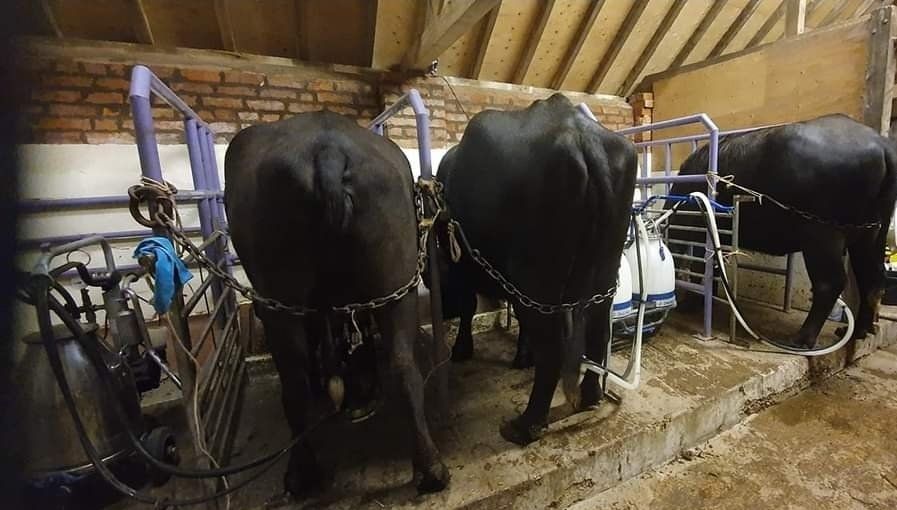
All our milk is currently pasturised and made into Gelato and cheeses. The Gelato is made on a small scale in Tamworth by a very skilled gentleman and then returned to the farm for sale. With the expert guidance of a local cheese maker, we make a hard cheese in batches of about twenty truckles, which are then left in caves to mature before returning to the farm for sale.
We are also currently trialing a soft cheese similar to Brie which we hope to launch at our next Pop-up shop. There are no immediate plans for mozzarella as we are very limited on space where we are. Our goal is to rent a larger farm or become council farm tenants which would provide us with a lot more opportunities to expand our products and therefore our business.
Any excess milk is fed to cade lambs in the spring time and also to the couple of pigs we rear on a rolling basis all year round. All the buffalo beef, lamb and pork we sell is raised by us and leads natural, outdoor, free-range lives. We are very proud that all our products have very low food mileage, all being produced in Staffordshire
Our produce is all available from the farm in Croxall by appointment or we run Pop-up shops every six weeks on the farm, the next one is the second weekend of December, more info can be found on our website www.mattwellyn.co.uk or find us on Facebook @Mattwellyn.
